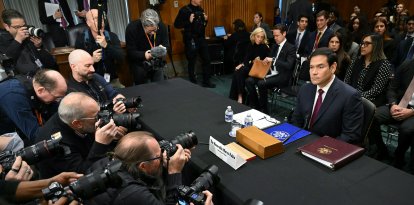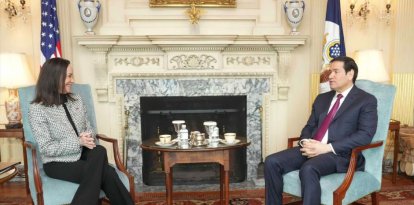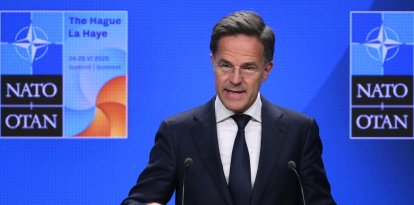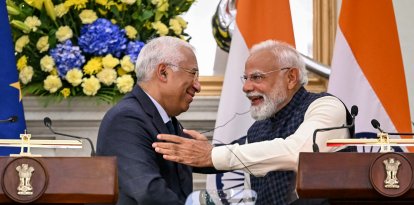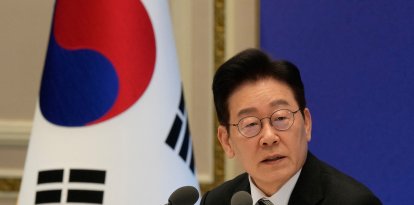US expands oil sanctions against Iran in response to attacks on Israel
The U.S. Department of Treasury explained that the sanctions will affect a "significant portion" of the fleet of Iranian tankers illegally transporting crude oil.
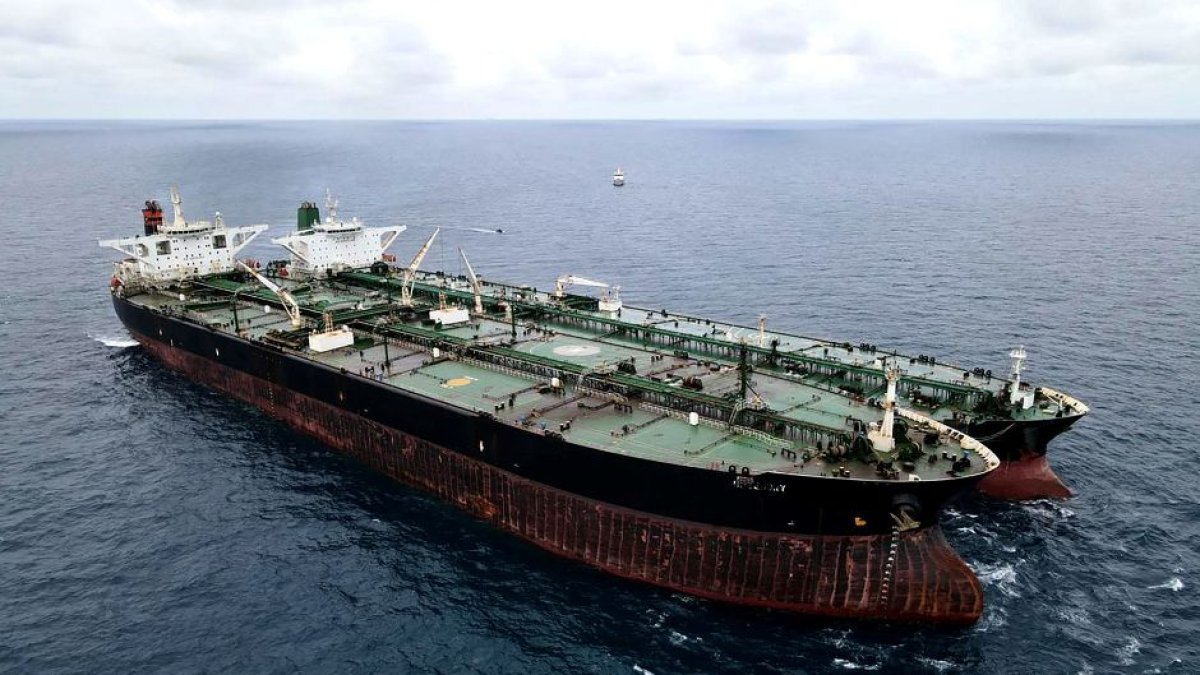
A seized Iranian tanker and a Panamanian vessel suspected of illegally transferring oil in Indonesian waters.
This Friday, the Biden administration announced a new series of sanctions targeting Iranian oil exports in response to the recent missile attack Tehran launched against Israel. This attack has prompted Washington to intensify economic pressure on Iran, targeting its revenues from energy sales, a key source for funding destabilizing activities in the Middle East.
The U.S. Treasury Department, in charge of implementing the measures, explained that the sanctions will affect a "significant portion" of Iran's fleet of tankers that illegally transport crude oil. These sanctions seek to limit Iran's ability to use its energy revenues to fund projects such as the development of its nuclear program, the proliferation of ballistic missiles and drones, and support for terrorist groups in the region.
"Today’s sanctions target Iranian efforts to channel revenues from its energy industry to finance deadly and disruptive activity—including development of its nuclear program, the proliferation of ballistic missiles and unmanned aerial vehicles, and support to regional terrorist proxies—with dangerous consequences for the region and the world. We will not hesitate to take further action to hold Iran accountable," the Treasury Department's statement reads.
New entities and vessels on sanctions list
In addition, the U.S. Office of Foreign Assets Control (OFAC) designated 10 new entities involved in the transportation and trade of Iranian oil and identified 17 vessels as blocked property. These designations reinforce the effort to shut down illicit export routes that have allowed Iran to continue selling oil despite previous sanctions.
Implications of the sanctions
The sanctions announced affect not only designated entities and any company or individual owning more than 50% of shares in those entities. In practice, this means that all assets of these targets on U.S. territory or under the control of U.S. persons will be blocked, and any transactions with them are prohibited.
In addition, any individual or entity inside and outside the U.S. who engages in transactions with the sanctioned persons risks being punished. Foreign financial institutions that knowingly facilitate such transactions could also face U.S. sanctions.
Criticism and calls for tougher measures
Although the Biden administration has imposed numerous sanctions on Iran since taking office, several critics have called for stronger action, highlighting that Iranian crude exports, especially to China, have allowed Tehran to prop up its weakened economy since the U.S. withdrawal from the nuclear deal in 2018.
Trade with China has been a major source of revenue for Iran, prompting calls for greater control over oil exports to that country, key to the Iranian regime's economic stability.
U.S. reaffirms commitment to weaken Iran
Secretary of State Antony Blinken stated that the United States remains determined to weaken Iran's revenues intended to fund attacks against its allies and support terrorist activities in the region. "As long as Iran devotes its energy revenues to funding attacks on our allies, supporting terrorism around the world and pursuing other destabilizing actions, we will continue to use all the tools at our disposal to hold it accountable," Blinken said.
Escalating tensions with Israel
The tensions between Iran and Israel have escalated following the ballistic missile attack launched by Tehran on Oct. 1 in retaliation for the deaths of senior commanders of groups such as Hezbollah and Hamas. Although the damage from the attack was limited, thanks to the air defense systems of Israel and its allies, this incident has raised the level of conflict in the region, testing diplomatic and military efforts to contain the situation.













